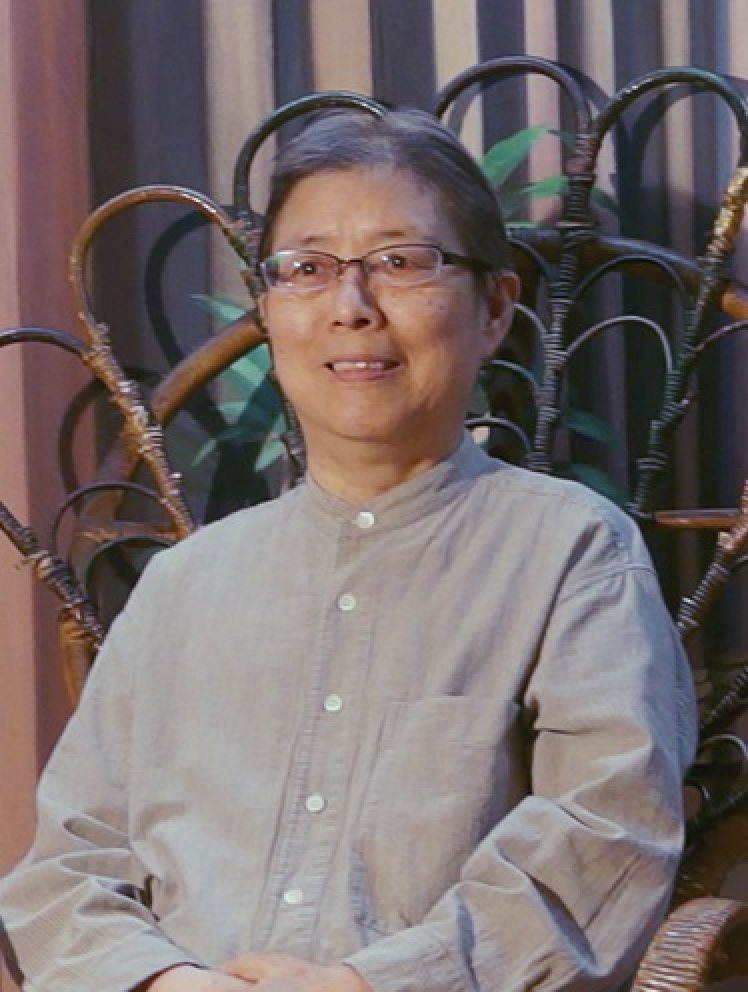Source: SCMP (12/19/22)
Hong Kong author Xi Xi, often credited with putting city on literary map, dies aged 85
A prolific writer of fiction, poetry, non-fiction and screenplays, Xi Xi led a life that was ‘wonderful, happy and meaningful’, a publisher she co-founded said. Her imaginative writing often gave mundane events a fairy tale twist. She famously called Hong Kong a ‘floating city’ in 1984 when its return to China was sealed
By Agence France-Presse

A scene from “Women Like Us”, a chamber opera commissioned by the Hong Kong Arts Festival last year is based on two short stories by Xi Xi. Photo: Hong Kong Arts Festival
Hong Kong author Xi Xi, whose whimsical tales became a defining portrait of a city transitioning away from British rule, died on Sunday, according to a publisher she co-founded. She was 85.
One of the most beloved names in Sinophone literature, she published more than 30 books of fiction, poetry, non-fiction and screenplays in a career spanning six decades.
She was often credited with putting Hong Kong on the map in the literary world.
Xi Xi died of heart failure at a Hong Kong hospital on Sunday morning surrounded by family and friends, publisher Plain Leaves Workshop said in a statement on Facebook.

Xi Xi published more than 30 books of fiction, poetry, non-fiction and screenplays in a career spanning six decades. Photo: Wikipedia (目宿媒體股份有限公司)
It said her life was “wonderful, happy, as well as beneficial and meaningful”.
Her imaginative writing often gave mundane events a fairy tale twist and was an invitation to “re-examine the world with fresh eyes and childlike curiosity”, said Jennifer Feeley, who translated some of her works.
After China and Britain signed an agreement in 1984 on the transfer of Hong Kong’s sovereignty, she famously described her home as a “floating city” – reflecting the anxieties of residents facing a historic shift.
In 2019 she became the first Hong Kong writer to win the Newman Prize for Chinese Literature, hosted by the University of Oklahoma’s Institute for US-China Issues.
Hong Kong’s culture minister, Kevin Yeung, mourned her loss and said Xi Xi “devoted her whole life to the creation of literary works, to the teaching of younger generations, as well as cultivating talent”.
Born Zhang Yan in Shanghai in 1937, she adopted the pen name Xi Xi and moved to colonial Hong Kong with her family in 1950.
She published her breakthrough novel, My City, in 1975 depicting urban life “from the vantage point of ordinary residents, using defamiliarisation and deceptively plain language”, said Feeley.
Mourning a Breast, was a semi-autobiographical account of her fight with breast cancer in the late 1980s, a subject rarely covered in Chinese-language literature up to that point.
In a 2020 interview, Xi Xi said she was shocked by the sight of young people bloodied in the huge and often violent democracy protests that had swept Hong Kong in the preceding months.
“Young people don’t owe us anything. Instead, it is us who owe them an ideal society,” she said.